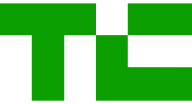Healthcare recruitment is a multifaceted process that involves identifying, attracting, and hiring the right talent for various roles within the healthcare sector. It plays a crucial role in ensuring healthcare organizations have the skilled professionals to deliver quality patient care.
Over the years, healthcare recruitment practices have evolved significantly, adapting to changing demands and technological advancements in the field. Understanding the essence of healthcare recruitment is essential to appreciate its significance and evolution.
Key Roles of a Healthcare Recruiter
Healthcare recruiters are pivotal in the industry and tasked with several critical responsibilities. First and foremost, they must identify the specific talent needs of healthcare organizations, understanding the unique skills and qualifications required for various roles.
Crafting compelling job descriptions is another crucial aspect of their role, as these descriptions serve as the initial point of contact between candidates and employers. Additionally, healthcare recruiters leverage digital platforms and online resources to source potential candidates, ensuring they have access to a broad pool of talent to choose from.
Navigating Challenges in Healthcare Recruitment
Despite its importance, healthcare recruitment faces several challenges. One significant obstacle is the shortage of skilled healthcare professionals, which has become more pronounced in recent years. This shortage pressures recruiters to find qualified candidates quickly while maintaining high standards.
Striking a balance between the quality and speed of hiring is another challenge, as healthcare organizations cannot afford to compromise on patient care. Additionally, addressing diversity and inclusion is crucial to healthcare recruitment, ensuring that healthcare teams represent the diverse patient populations they serve.
Trends Shaping Healthcare Recruitment
Several trends are currently shaping the landscape of healthcare recruitment. The rise of telehealth and remote opportunities has expanded the geographical reach of healthcare organizations, allowing them to tap into talent from different regions.
Embracing AI and technology in talent acquisition is becoming increasingly common, streamlining the recruitment process and helping recruiters make data-driven decisions. The COVID-19 pandemic has also significantly impacted recruitment strategies, with remote interviews and onboarding becoming more prevalent. Adapting to these trends is crucial for healthcare recruiters to stay competitive and ensure they continue to meet the evolving needs of the industry.

Crafting an Effective Healthcare Recruiting Strategy
Crafting a successful healthcare recruiting strategy is essential to attract top talent in this competitive field. One crucial element is building a strong employer brand that showcases the organization’s values, culture, and commitment to patient care.
Leveraging social media platforms for candidate engagement is also vital, as it allows recruiters to connect with potential candidates, share insights into the workplace, and create a sense of community. Moreover, implementing a streamlined interview process that ensures a seamless experience for candidates can make a significant difference in attracting and retaining healthcare professionals.
Educational and Professional Qualifications
When assessing potential candidates in healthcare recruitment, it’s imperative to focus on their educational and professional qualifications. Identifying relevant degrees and certifications specific to the healthcare role is fundamental. Evaluating the candidate’s experience in healthcare settings, such as hospitals or clinics, provides insights into their familiarity with the industry’s unique challenges.
Additionally, assessing soft skills like communication, empathy, and teamwork is crucial, as these qualities are often just as important as technical qualifications in providing quality patient care.
The Art of Interviewing in Healthcare Recruitment
Interviewing candidates effectively is an art that healthcare recruiters must master. Behavioral interview techniques help uncover how candidates have handled specific situations in the past, providing valuable insights into their problem-solving abilities and interpersonal skills.
Assessing cultural fit within healthcare settings is essential to ensure candidates align with the organization’s values and patient-centric approach. Role-specific interview questions should be tailored to the particular position, allowing recruiters to gauge a candidate’s expertise and suitability for the role, which is as important as technical qualifications in providing quality patient care.
Streamlining the Onboarding Process
A well-structured onboarding process is the final piece in the healthcare recruitment puzzle. Comprehensive onboarding is crucial to ensure new hires transition seamlessly into their roles and become productive team members. It encompasses introducing them to the organization’s culture, policies, procedures, and specific job responsibilities.
Ensuring compliance with healthcare regulations during onboarding is essential to avoid legal issues and maintain high standards of care. Facilitating a smooth integration into healthcare teams is equally important, as it fosters a sense of belonging and helps new hires become effective contributors to patient care from day one.
Data-Driven Decision Making in Recruitment
In today’s digital age, data-driven decision making is transforming healthcare recruitment. Recruiters are leveraging analytics to gain valuable insights into talent acquisition. Predictive modeling is being used to identify future talent needs, enabling proactive recruitment strategies.
Continuous improvement through data feedback allows organizations to refine their recruitment processes and adapt to changing demands. Ethical practices in negotiating job offers are also emphasized, ensuring that candidates are treated fairly and transparently throughout the hiring process.
Measuring Recruitment Success
Measuring the success of healthcare recruitment efforts is vital for continuous improvement. Key Performance Indicators (KPIs) specific to healthcare recruitment, such as time-to-fill positions, candidate satisfaction scores, and retention rates, provide valuable benchmarks for evaluating the effectiveness of the recruitment process. Continuous monitoring and adaptation based on these metrics are essential for staying competitive and meeting the evolving needs of the healthcare industry.
Conclusion
In the challenging but rewarding world of healthcare recruitment, success lies in the ability to adapt, innovate, and prioritize delivering quality patient care through acquiring exceptional talent. As healthcare organizations evolve, healthcare recruiters must continue to refine their practices and embrace change, ensuring that the healthcare sector remains vibrant and resilient in the face of new challenges and opportunities.





